Guptagate: The scandal South Africa's Zuma can't shake
- Published
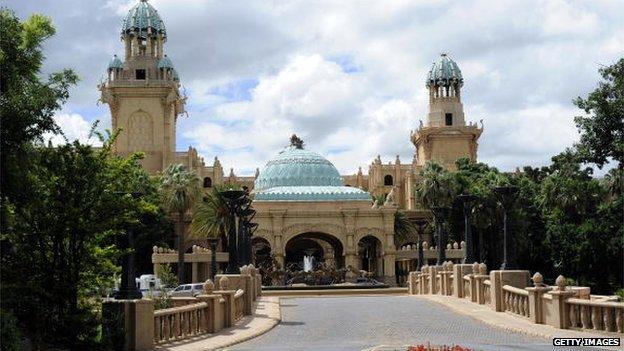
A wedding at a glitzy resort hotel has caused a headache for South Africa's leader
It is two years since an unusual plane landed at a South African military air force base in Pretoria. The aircraft was a private jet carrying guests from India, heading to a high society wedding at Sun City - the famous casino resort in the hills to the north-west of the capital.
Military officials at the base gave the revellers a VIP welcome.
But the landing was unofficial, and illegal - an abuse of a secure military base. And the incident quickly turned into a major political scandal, when it was alleged that "Number One" - a reference to President Jacob Zuma - had personally authorised the whole affair as a favour to friends.
The president denied the allegation in parliament. An in-house investigation cleared him too, and instead pointed the finger of blame at the president's chief of protocol and two air force officials.
Twist of fate
But in an intriguing twist, charges against those two air force officials have been quietly dropped, while the chief of protocol - who retracted his initial claim that "Number One" had indeed authorised the landing - ended up being given a job as South Africa's ambassador to the Netherlands.
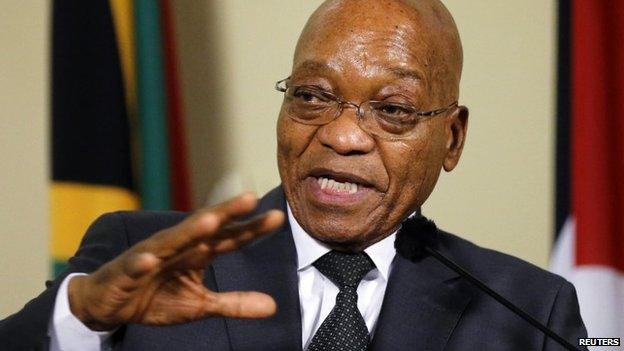
The scandal could cause problems for Jacob Zuma
And to make matters even more curious, both air force officers now say they are planning to pursue civil claims that could see President Zuma called to give evidence in court.
The scandal is known here as Guptagate - a reference to the Guptas, an Indian family that has built up a formidable business empire in South Africa, and has repeatedly been accused of wielding excessive influence over President Zuma. Two of his children have been employed in Gupta-owned companies.
Fall guys?
The private jet at the heart of the affair was taking guests and relatives of the Gupta brothers, Atul, Ajay and Rajesh, to the wedding of a 23-year-old niece, Vega Gupta. The Gupta family have since insisted that proper process was followed and permission sought from the appropriate officials.
"It's an appalling act of cynicism," said David Lewis from South Africa's Corruption Watch, referring to the treatment of the three officials blamed for the scandal - former head of state protocol Bruce Koloane, Lt Col Christine Anderson and her colleague Lt Col Stephan Van Zyl. "These people were scapegoated."
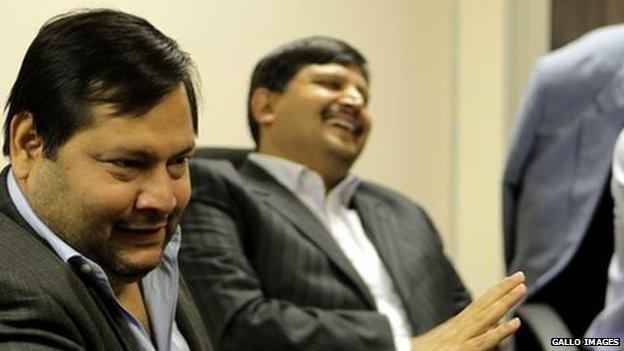
Brothers Ajay and Atul, members of the wealthy Gupta family
"The one who actually took the bullet [Bruce Koloane] clearly took it in exchange for an ambassadorship in Holland. And I bet the same happens to those officials charged with the Nkandla affair," said Mr Lewis, in reference to the various investigations into the lavish state-funded upgrades to President Zuma's private rural homestead in Nkandla.
President Zuma has been "hijacked by certain financial interests - doing the bidding of certain individuals," said political analyst Mcebisi Ndletyana, adding that the episode was characteristic of the "personalised rule" he claimed was undermining South Africa's democratic institutions.
"The power lies with the Gupta family. So you really have a president who is indebted to a particular clique."
President Zuma's spokesman, Mac Maharaj, currently at the World Economic Forum in Davos, said there was "nothing new" in the latest developments, and declined to comment on reports of a future civil case against the president and other officials.
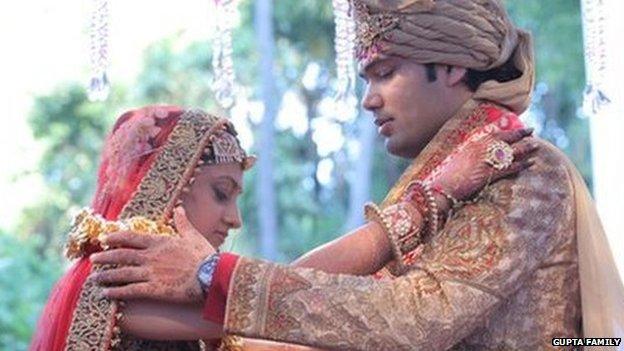
The lavish wedding of Vega Gupta, left, and Aaskash Jahajgarhia may have backfired
- Published14 February 2018
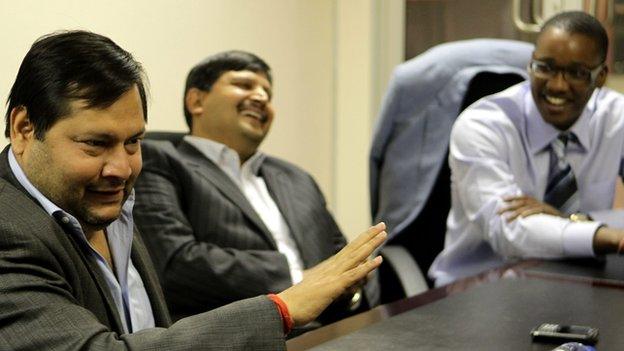
- Published3 May 2013
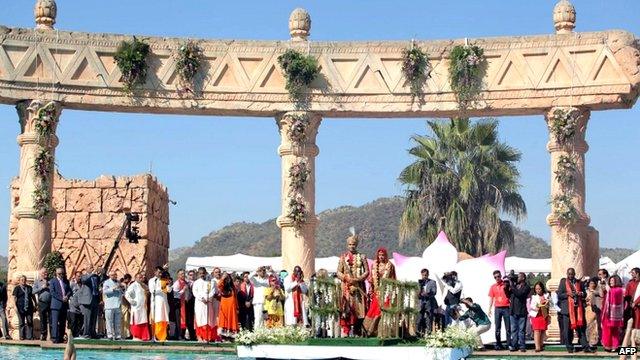
- Published9 July 2024

